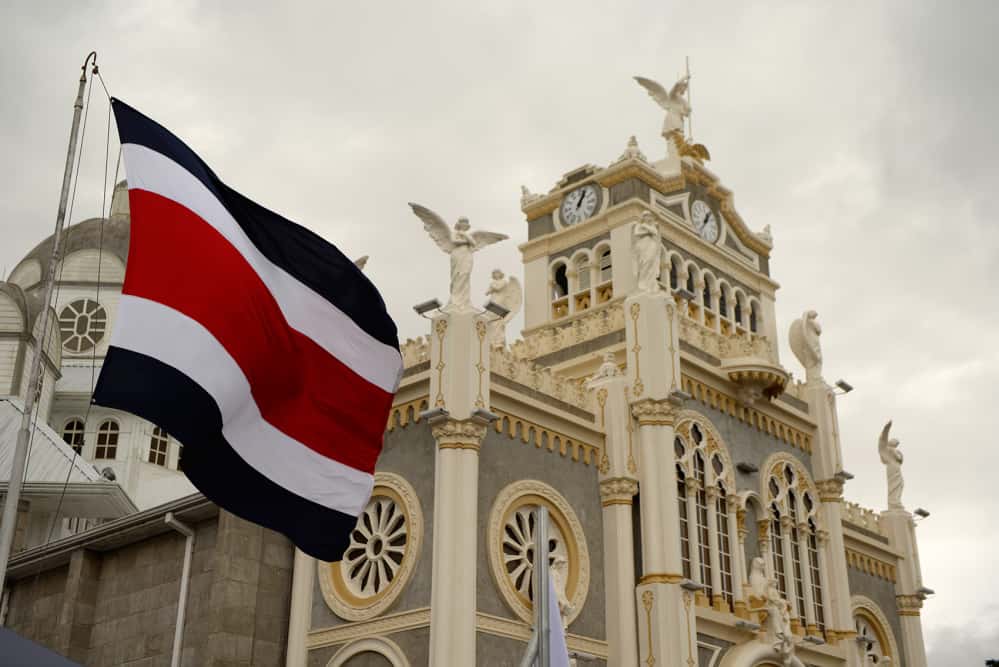The recent accusation against a father who allegedly raped and impregnated his 12-year-old daughter has generated waves of controversy through Costa Rica. In the midst of a growing national debate, heightened when a Catholic priest called the pregnancy “a blessing from God,” The Tico Times spoke with a human rights lawyer about the legal possibilities available to the family.
Indignation rose Friday when the accused, identified by the last names Paniagua Campos, was released from custody by a Limón-area judge after his Wednesday arrest, according to Spanish-language daily La Nación. An investigation is ongoing as prosecutors say they will try to continue to get a three-month preventive prison sentence for the accused.
The girl’s mother made the official complaint earlier this month when she discovered the girl was pregnant. The child was reportedly visiting her father’s house in Matina, Limón in December of last year when crime is alleged to have occurred.
Widespread discussion has taken place in traditional and social media over whether the child should have access to an abortion. Abortion is illegal in Costa Rica, except only in cases when its necessary to “avoid danger” concerning the pregnant woman’s health or life, according to Article 121 of the country’s Penal Code.
Fanning the flames of the debate, a Costa Rican priest told a local newspaper that although the act itself was “unfortunate,” the girl “has to thank God for this gift.” Priest Sixto Varela of the Alajuela Archdiocese told the Spanish-language news site La Prensa Libre that the Catholic Church can assist the girl during this ordeal, but asks that she “save the life” of her fetus.
“(Giving our support) can make her see the gift of life that God is giving her at such a young age, as this unfortunate assault has sprung forth an unplanned pregnancy,” Varela said. “But also we have to see the blessing from God here and she has to thank God for this gift and not feel guilty, because that is the most important thing when something like this happens.”
The priest reiterated that abortion can never ben an option.
“What happens is there is this double standard that a lot of people have,” he said. “It makes them think it’s easier to kill an innocent, and with that we solve the problem.”
The Tico Times called Valera’s church office multiple times Friday for further clarity on his comments. However, Valera did not respond to the messages left with his secretary by publication of this article.
Lawyer Larissa Arroyo, who has offered to provide legal assistance to the child and her family, said this case raises a crucial human rights issue in Costa Rica because many women and girls are unaware that they can have request an abortion in these cases to a doctor registered with the Caja, the country’s social security system, or the Public Health Ministry.
Arroyo said this tragic incident should be used to remind Costa Rican women that sometimes, even if in legally rare cases, they do have a choice. She said a minor who is the victim of incestuous rape can argue effectively to a doctor or court that an abortion will allow her to “avoid danger” emotionally or physically.
“The question is if we have a girl whose physical and emotional health are going to be damaged because an abortion isn’t offered to her, then what are we really doing as a society?” Arroyo said in a phone interview with The Tico Times.
It’s up to the country to put in place adequate resources and legislation required to protect and care for innocent minors when they are sexually assaulted, she said.
“We know that a little girl isn’t prepared to take on a pregnancy, especially when it comes from incest,” Arroyo said. “The issue becomes about what the country is actually doing to make sure it prevents sexual abuse of little girls and giving them support.”
Arroyo said she’s had some contact with the family, but that it is still unclear whether or not the girl will request an abortion, adding that the girl’s right to choose should be accepted before all else.
Though Arroyo said the girl’s mother has declined legal support for now, Arroyo and her group, the Strategic Actions for Human Rights (ACCEDER), are collecting monetary and material donations for the family.










